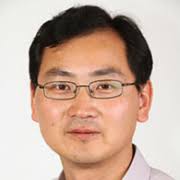ICEMAT 2024 Keynote Speakers
Prof. Mohammad Rasul
Central Queensland University, Australia
Speech Title: Navigating Challenges and Opportunities for Hydrogen as Sustainable Energy Future
Abstract: The escalating hydrogen demand, expected to surge eightfold by 2050 compared to 2020, poses multifaceted challenges for its energy sector deployment. Hydrogen's exceptional calorific value, ranking second at 120-142 MJ/kg, positions it as the prime energy-to-weight ratio among conventional fuels. Green hydrogen production, with readiness levels around 7-8 and commercial readiness indices of about 4-5, commands a significant 30% market share with 55-80% efficiency and production costs of $4-7/kg H2. While costs are projected to reach $1-2/kg H2 in the future, integrating various production processes is crucial, transcending mass-scale production. Metal hydride emerges as an economical hydrogen storage solution at $125/m3, while ammonia leads with a low specific energy cost of $13/GJ. Streamlined infrastructure development is imperative for efficient storage, transportation, and delivery. This exhaustive review encompasses hydrogen production, storage, costs, and applications, offering insightful analysis and guidance on hydrogen's energy carrier challenges. Achieving sustainable development goals by 2050 necessitates integrated planning, infrastructure, cost reduction, net-zero emissions, and innovative storage. Policymakers, researchers, and scientists can utilize this review as a blueprint to shape hydrogen's future role in energy.
Abstract: MOHAMMAD RASUL obtained his PhD in Clean Energy from The University of Queensland (Australia). Currently, he is a Professor of Mechanical Engineering at the School of Engineering and Technology, Central Queensland University (CQUniversity). He is the recipient of Vice-Chancellor’s awards for outstanding researchers in excellence in research category, VC’s awards for research higher degree supervision, good practice in learning and teaching, and several students’ voice awards. He has published over 500 research articles/papers in journals, refereed conferences, books, and book chapters. His notable edited book is on “Clean Energy for Sustainable Development: Comparisons and Contrast of New Approaches”, published by Elsevier. He is the recipient of 10th anniversary best paper award for highest citation in Energies journal. Professor Rasul is listed within the top 1% researchers in the world as per 2020 survey by Stanford University (USA). His publications have created strong impact to the scientific and professional communities and attracted over 17,000 citations with h-index of 64 as of 6 January 2024.
He has supervised 33 Higher Degree by Research (HDR) students to completion and currently supervising 9. His grant funding has totaled over $6 million. He is the founder of Clean Energy Academy of CQUniversity and leader of Fuel and Energy Research Group at CQUniversity. He is recognised, both nationally and internationally, through his varied roles and activities, for example, he is an editor of the Australian Journal of Mechanical Engineering (Taylor and Francis), section editor of Encyclopedia of Renewable Energy, Sustainability and The Environment (Elsevier), editorial board member of 5 journals, technical and scientific committee member of about 14 conferences, and grant assessor for different countries (Australia, Qatar and Singapore). He frequently creates attention of media and community engagement through expert opinion and interview by different media, such as ABC 7 TV, ABC 7 News, ABC Tropical North, ABC Capricornia FM, Morning Bulletin and News Mail.
Prof. Xiaolin Wang
University of Tasmania, Australia
Speech Title: Some recent development of compressed air energy storage technologies
Abstract: This presentation discusses the current development and advances of compressed air energy storage technology. The general concept of compressed air energy storage technology will be first introduced. Then a new concept of combined pump hydro and compressed air energy storage systems was proposed and the performance of the combined system was evaluated under different working conditions. The effect of the key parameters such as storage pressure, initial pressure, and compression process on the system performance was further studied and reported. Furthermore, the heat and mass transfer in the compression air storage vessel was analysed, and its impact on the compression process and system performance was investigated. Finally, the latest research on wave-driven compressed air energy storage was briefly presented. This lecture highlights the potential and design consideration of the compressed air energy storage system in real applications.
Biography: Professor Wang enjoys his strong research in Cooling and Power Engineering, Energy Storage and Conversion, Desalination and Utilization of Renewable Energy. He was named as National Field Leader in Thermal Science by the Australian Research Magazine in 2018. He is a Fellow of Engineers Australia. He won the DAAD visiting fellowship by DAAD Germany in 2003 and the Ludwig Mond Prize 2005, from the Institute of Mechanical Engineers (IMechE) of the United Kingdom. He won the Australian China Young Scientist Exchange Program award in 2009 and the Australian Japan Emerging Research Leader Program award in 2016 by the Australia Academy of Technological Sciences and Engineering (ATSE). He received “Dean’s Award” for outstanding research performance in 2016 and “College Award-Research Excellence” in 2023. He is the Subject Editor of Applied Thermal Engineering, Associate Editor of IMechE Part E: Journal of Process Engineering, Scientific Reports and Frontiers in Built Environment, Topic Editor of Applied Sciences, Energies, sustainability and Thermos, and Editorial board member for five other international journals. He has completed many national/international research projects with a total value of more than $7 million. He has published more than 260 international journal and conference papers with an H-index of 47 in Google Scholar and 40 in Scopus/Web of Sciences.

